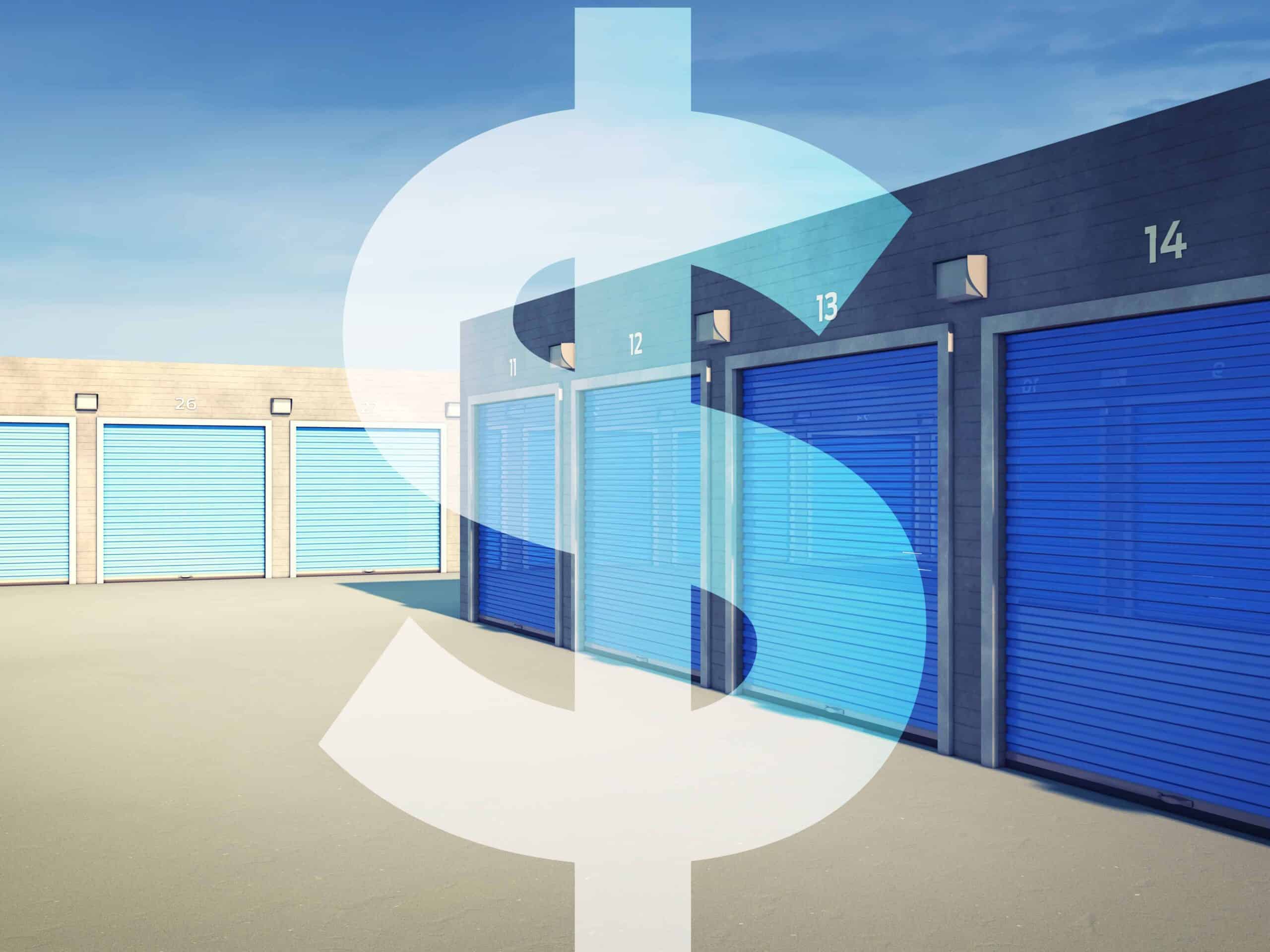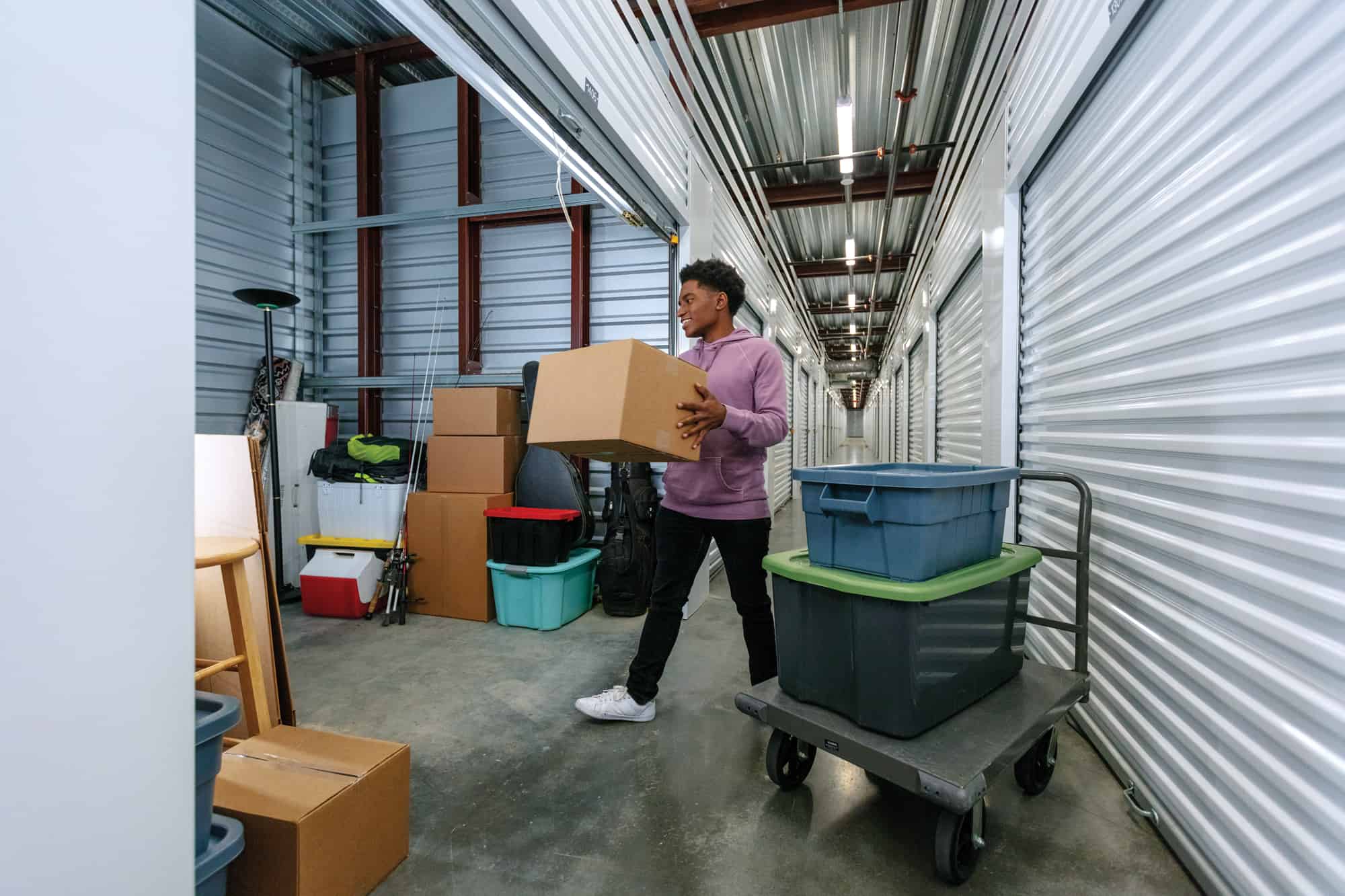Why Going Green is a Golden Opportunity for Self-Storage Operators

The planet just notched its hottest summer on record. Worldwide, the frequency and intensity of severe weather events like droughts, wildfires and hurricanes are on the rise.
As these climate shifts intensify, they are manifesting negative consequences for American households and business operators. Take for example the city of Phoenix, Arizona, where the government has virtually banned new housing from being built because there is not enough groundwater left to support it. Or take another example from this year: State Farm and Allstate stopped insuring homes in the entire state of California due to unprecedented risks now posed by wildfires.
Both of these examples show how changes in climate have knock down effects that impact local economies, of which self-storage operators are not immune. As a result of these tangible impacts on everyday life, more and more consumers are also reevaluating their lifestyles and how their daily choices impact the quality of the environment they inhabit.
Changing Consumer Attitudes
Market research finds that two-thirds of consumers are willing to pay more for a product that is more environmentally-friendly compared to a competing product that is not, even amid high inflation and high interest rates.
For storage operators, the implications of this are that more storage shoppers are now considering how green a self-storage facility is, alongside factors such as price, convenience and security, when making a purchase decision. By embracing sustainable practices, amenities and building techniques, self-storage operators may be able to glean a competitive advantage—while also contributing to a cleaner and more stable climate with less severe disasters in the process.
Furthermore, investors are also paying close attention to these trends and increasingly seeking investments that meet certain standards for sustainability and environmental stewardship. With the rise of the Environmental, Social and Governance (ESG) investment framework, institutional buyers of self-storage facilities consider the carbon footprint of every piece of property they buy.
Understanding Self-Storage’s Contribution to Climate Change
In a way, the self-storage industry is one that promotes sustainability by providing a means for the population to retain their belongings in times of crisis or transition. Without storage as an option, many such belongings would be abandoned and destined for a landfill. The existence of affordable and convenient storage space means households can avoid repurchasing furniture and other goods if they have a change in living arrangements.
However, the industry does contribute to climate change primarily in two ways: energy consumption and new construction. For non-climate controlled facilities, energy consumption is minimal—but with climate-controlled facilities it can be quite significant.
When it comes to the construction of new self-storage facilities, the industry contributes to climate change primarily through its use of concrete. The manufacture of concrete is responsible for roughly 8% of global emissions, and demand for the material continues to rise. Steel and aluminum production are also major sources of emissions.
Why Storage Operators Should Care About Sustainability
Relative to other sectors, the self-storage industry is a fairly clean one. That could be used as a reason for operators to not pay any mind to ESG or environmentalism whatsoever. That is a mistake.
For any given facility, even small steps towards sustainability can go a long way towards achieving carbon neutrality or other green goals. Because storage facilities already have a fairly minimal baseline of emissions, achieving status as a green business is perhaps easier to obtain than it is for other industries. Beyond contributing to a better environment, there are economic benefits for self-storage operators that take such steps towards sustainability, especially considering the minimal barriers that exist towards doing so. Benefits include:
- Increased Facility Valuation: ESG practices can enhance a self-storage facility’s valuation. Investors and buyers are increasingly interested in environmentally and socially responsible assets. ESG compliance can make your property more attractive to potential buyers, including those with institutional mandates for ESG investments.
- ROI for Smaller Operators: Implementing ESG initiatives doesn’t have to be cost-prohibitive. Small operators can benefit from reduced energy costs, tax incentives, and enhanced reputation, ultimately resulting in a positive return on investment over time.
- Appeal to Gen Z: Generation Z, the upcoming market force, places a high value on sustainability and ethical practices. Embracing ESG can differentiate your self-storage facility in a crowded market and attract younger customers.
Creating a More Sustainable Self-Storage Industry
What can self-storage operators do to incorporate sustainability-minded cESG principles into their operations? Here’s a list of actionable advice:
- Install solar panels to generate on-site electricity. Participation in a community solar program can create additional revenue.
- Automate facility operations for greater efficiency.
- Repurpose existing buildings for self-storage to reduce use of new construction materials.
- Consider LEED certification and follow new build guidelines for sustainable construction.
- Implement energy-efficient lighting and HVAC systems to reduce consumption and costs.
- Encourage customers to properly dispose of hazardous materials.
- Use eco-friendly cleaning products and pest control methods.
- Establish recycling programs for materials like paper, cardboard, and metal.
- Provide a drop off point for electronics recycling.
- Invest in water-saving technologies, such as low-flow toilets and faucets.
- Utilize electric-powered equipment for maintenance and groundskeeping.
- Communicate environmental initiatives to customers and the public.
- Conduct regular energy and water audits for continuous improvement.
- Collaborate with local nonprofits to donate abandoned items, reducing landfill waste. Donating items to nonprofits can lead to tax incentives, as it is considered a charitable donation and contributes to reduced landfill waste, benefiting both operators and the environment.
- Explore partnerships with organizations like Madison Energy Investments (MEI) that can assist in integrating ESG principles into your self-storage operations. MEI specializes in sustainable investments and has worked with storage clients to implement ESG initiatives effectively.
From Green to Gold
Incorporating these principles into self-storage operations can be a straightforward and profitable endeavor. It not only benefits the bottom line but also aligns with responsible business practices and contributes to a more prosperous future for our planet and local communities. By doing so, we can collectively make a positive impact on our environment and society. Self-storage operators have a unique opportunity to contribute to a sustainable future while enhancing their business prospects.

Storage Monitor: 29 Markets with Positive Rate Growth
Unmanned facilities offer a new type of storage experience for tenants, one that is increasingly embraced by tech-savvy customers. Keep Reading

Storage Monitor: A Mid-Year Recap of Price and Occupancy Trends
Unmanned facilities offer a new type of storage experience for tenants, one that is increasingly embraced by tech-savvy customers. Keep Reading